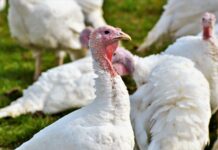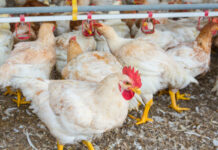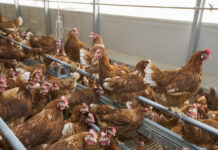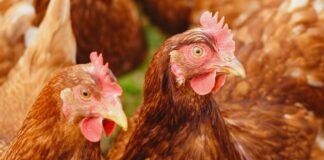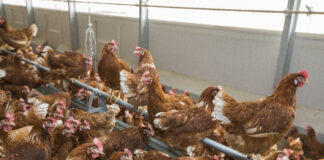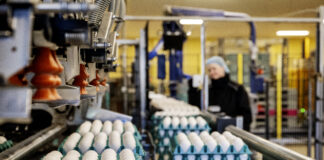
Interventions to control and reduce the incidence of Campylobacter jejuni colonization in poultry is important in order to reduce the burden of foodborne illness in humans.
Attempts to control this pathogen using antimicrobials have become less effective due to the widespread emergence of resistant strains, and there is a pressing need to develop unconventional intervention strategies. Thus, alternative methods to control C. jejuni has led to a variety of strategies for vaccine development.
Specific objectives for this research study included, 1) to predict the protein-coding regions of isolated Campylobacter strains by analyzing the complete genome sequences, 2) to identify vaccine candidates against C. jejuni via computer simulation, and 3) to evaluate the feasibility of the antigens as vaccine candidate using in vitroscreening approach.
This project employed a reverse vaccinology strategy using genomic information to discover unique antigens that traditional vaccinology methods had previously missed. Researchers initiated vaccine development from bioinformatics analysis. Multiple genome sequences of C. jejuni strains isolated from different poultry sources (e.g., retail meat, cloacal swab, and litter samples) were compared. A total of six antigens were predicted based on the whole genome sequences of C. jejuni. Out of the six predicted antigens, three novel antigens (e.g., CdtB, PldA, and BtuB) were identified. They are characteristic outer membrane proteins expressed by C. jejuni, highly conserved and harbor immunogenic properties. In addition, their genes are highly expressed during the host-pathogen interaction. These three antigens have not been tested as vaccine candidates and have the potential to be developed into broad spectrum and effective vaccines against C. jejuni.
In summary, researchers used an innovative strategy to combine a reverse vaccinology and in vitroinfection model screening approach to successfully identify three novel vaccine candidates. The data obtained from this study may guide the industry to develop effective vaccines to reduce C. jejuni colonization in poultry and enhance the safety of poultry products. The outcomes could also help reduce the concern for human health and economic burden incurred by C. jejuni infection.
Source: U.S. Poultry & Egg Association


